Indigenous Governance Database
waiver of sovereign immunity
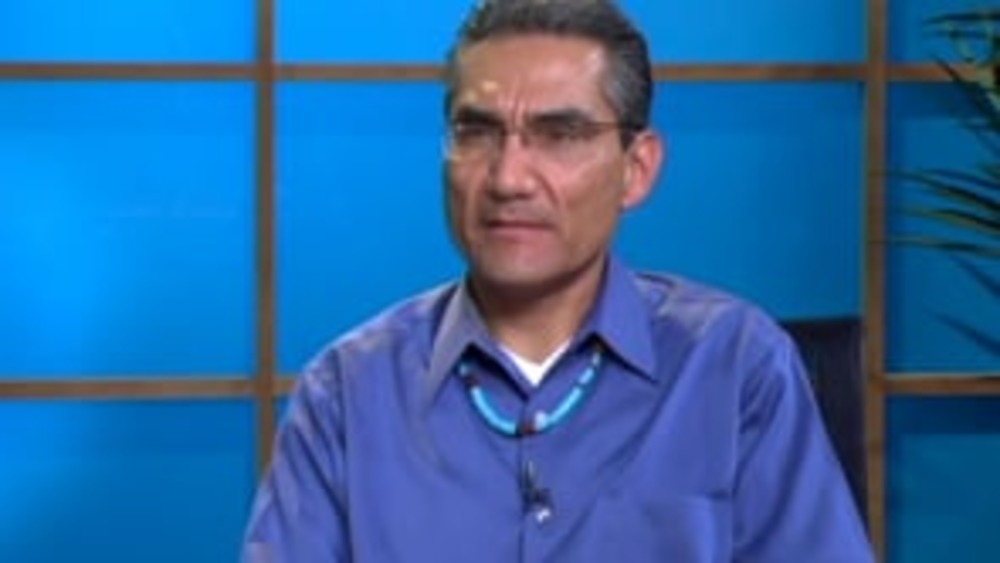
Joseph Flies-Away: The Role of Justice Systems in Nation Building
In this in-depth interview with NNI's Ian Record, Joseph Flies-Away, citizen and former chief judge of the Hualapai Tribe, discusses the central roe that justice systems can and should play in Native nation rebuilding efforts, how justice systems serve as platforms for healing and cultural renewal…
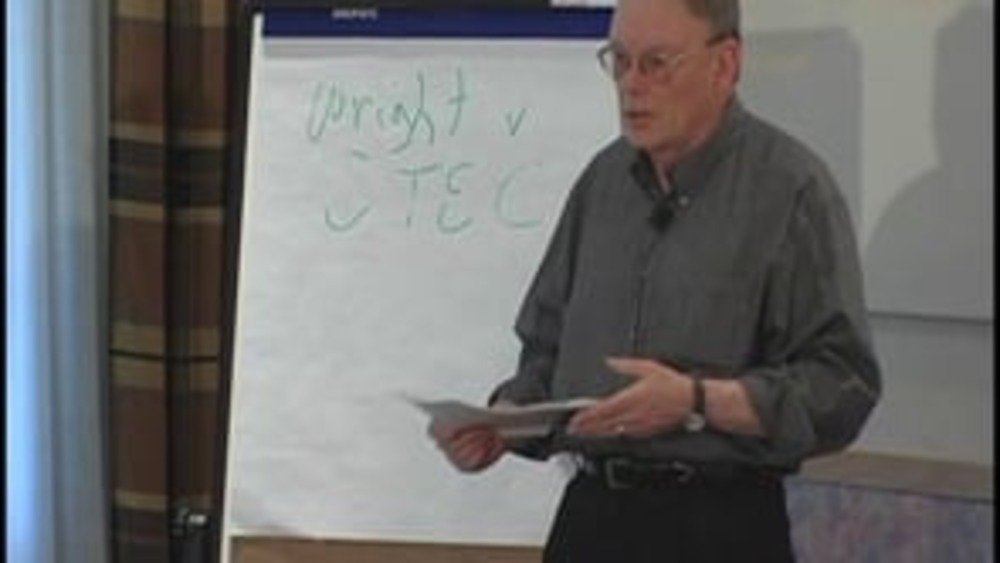
Michael Taylor: The Practical Issues of Business Development - Some Things to Consider: When to Waive Sovereign Immunity (or Not)
Tulalip Tribes' Attorney Michael Taylor explains when tribes should and should not waive sovereign immunity and why. He also discusses some effective approaches to doing limited waivers of sovereign immunity, and stresses the importance of Native nations building a track record of fair and…
NNI Forum: Tribal Sovereign Immunity
Tribal sovereign immunity has far-reaching implications, impacting a wide range of critical governance issues from the protection and exertion of legal jurisdiction to the creation of a business environment that can stimulate and sustain economic development. Native Nations Institute (NNI) Radio…
Joseph P. Kalt: Sovereign Immunity: Walking the Walk of a Sovereign Nation
Harvard Project on American Indian Economic Development Co-Director Joseph Kalt discusses what sovereign immunity is and what it means to waive it, and share some smart strategies that real governments and nations use to waive sovereign immunity for the purposes of facilitating community and…

Will the Supreme Court Use Bay Mills Case to Blow Up Tribal Sovereignty?
As regular visitors to this site and other Indian country media outlets no doubt have seen in recent weeks, Native nation leaders, tribal attorneys, and federal Indian law practitioners alike are gravely concerned about a case currently pending before the Supreme Court: State of Michigan v. Bay…

How Tribes Can Prepare for Tribal Sovereignty Blow From Supreme Court
In the first part of this two-part series, we provided a short history of the upcoming U.S. Supreme Court case State of Michigan v. Bay Mills Indian Community, discussed its relevance to the sustainability of the legal doctrine of tribal sovereign immunity, and detailed two potential outcomes of…
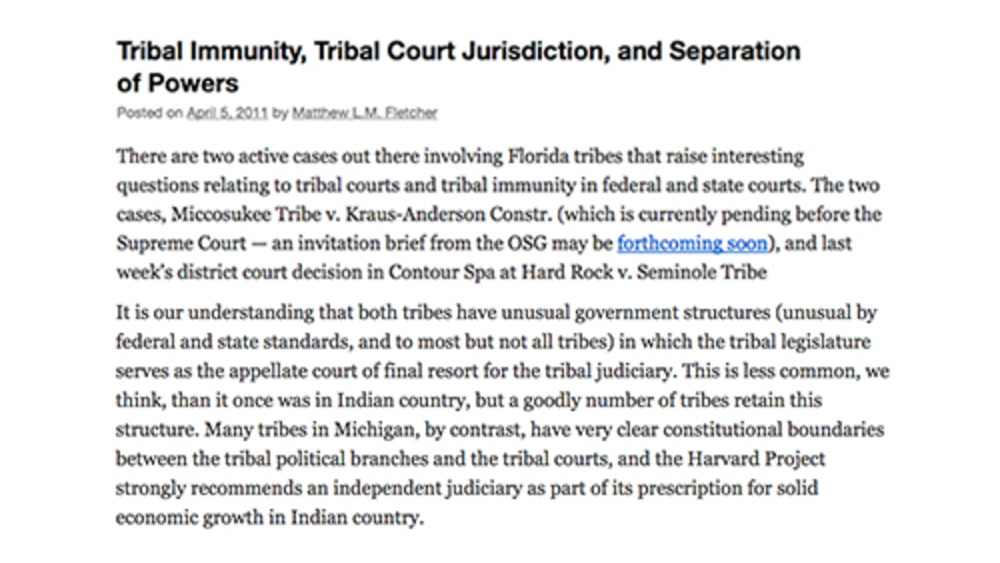
Tribal Immunity, Tribal Court Jurisdiction, and Separation of Powers
There are two active cases out there involving Florida tribes that raise interesting questions relating to tribal courts and tribal immunity in federal and state courts. The two cases, Miccosukee Tribe v. Kraus-Anderson Constr. (which is currently pending before the Supreme Court – an invitation…
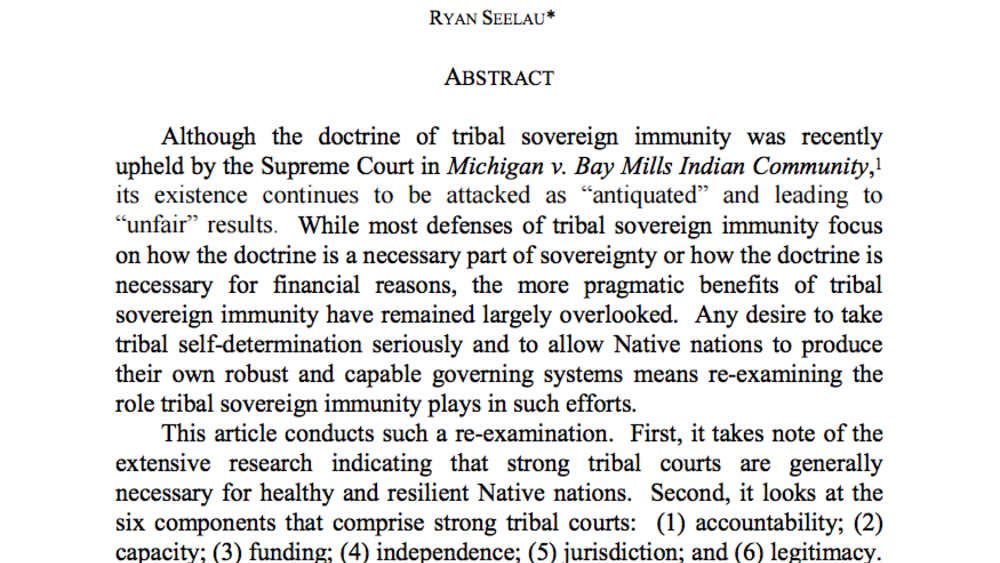
In Defense of Tribal Sovereign Immunity: A Pragmatic Look at the Doctrine as a Tool for Strengthening Tribal Courts
Although the doctrine of tribal sovereign immunity was recently upheld by the Supreme Court in Michigan v. Bay Mills Indian Community, its existence continues to be attacked as antiquated and leading to unfair results. While most defenses of tribal sovereign immunity focus on how the doctrine is a…
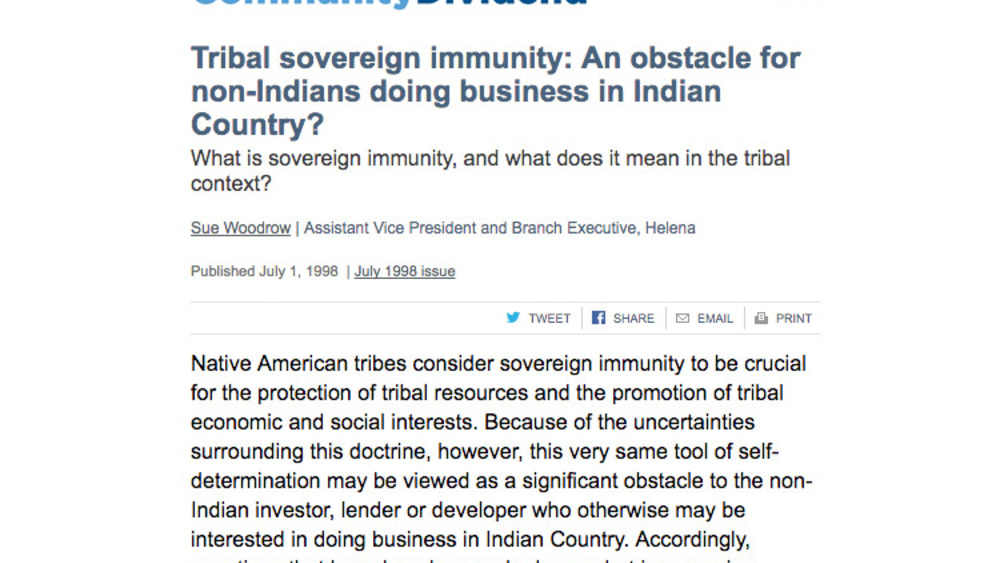
Tribal sovereign immunity: An obstacle for non-Indians doing business in Indian Country?
Native American tribes consider sovereign immunity to be crucial for the protection of tribal resources and the promotion of tribal economic and social interests. Because of the uncertainties surrounding this doctrine, however, this very same tool of self-determination may be viewed as a…
